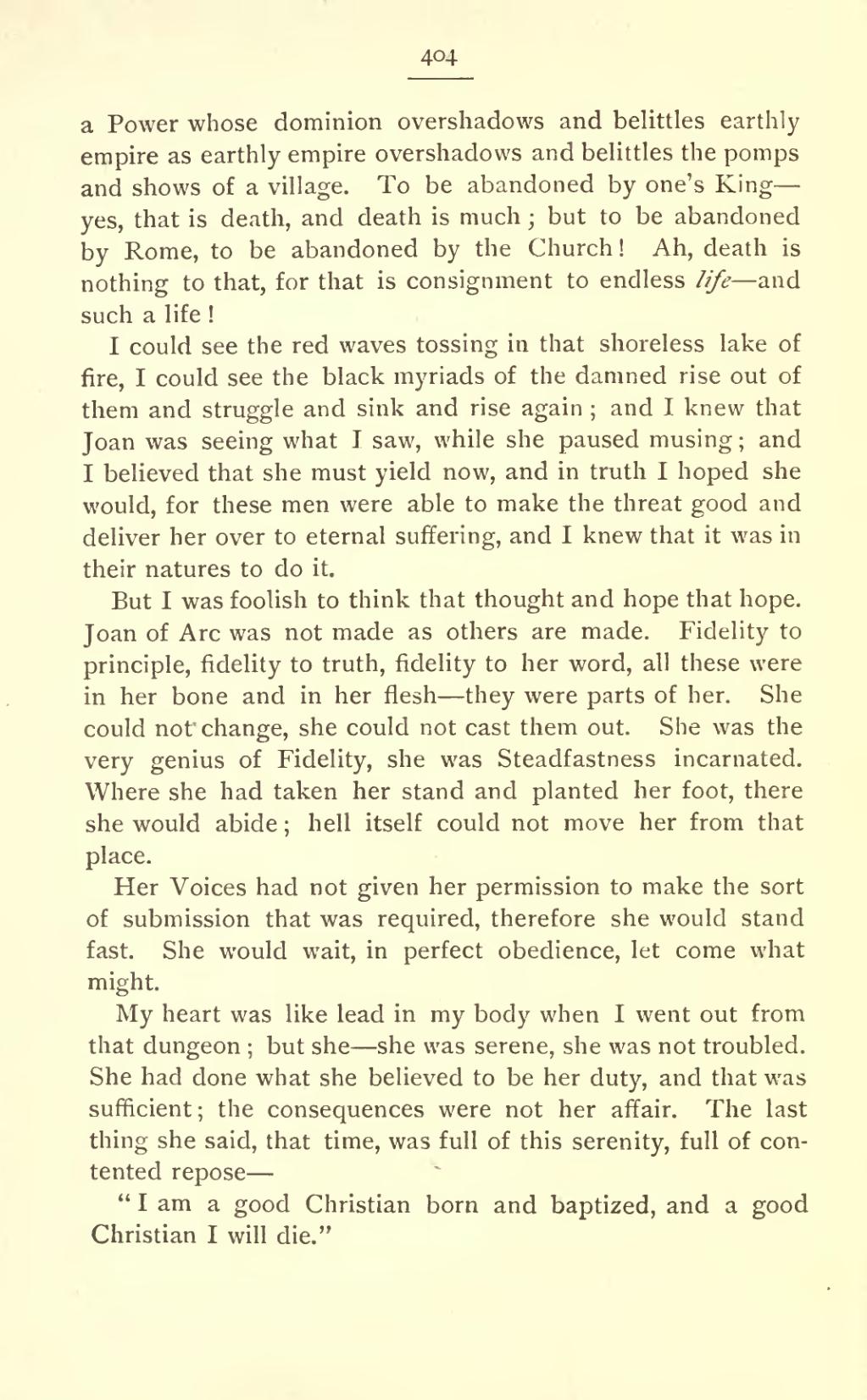404
a Power whose dominion overshadows and belittles the pomps and shows of a village. To be abandoned by one's King—yes, that is death, and death is much; but to be abandoned by Rome, to be abandoned by the Church! Ah, death is nothing to that, for that is consignment to endless life—and such a life!
I could see the red waves tossing in that shoreless lake of fire, I could see the black myriads of the damned rise out of them and struggle and sink and rise again; and I knew that Joan was seeing what I saw, while she paused musing; and I believed that she must yield now, and in truth I hoped she would, for these men were able to make the threat good and deliver her over to eternal suffering, and I knew that it was in their natures to do it.
But I was foolish to think that thought and hope that hope. Joan of Arc was not made as others are made. Fidelity to principle, fidelity to truth, fidelity to her word, all these were in her bone and in her flesh—they were parts of her. She could not change, she could not cast them out. She was the very genius of Fidelity; she was Steadfastness incarnated. Where she had taken her stand and planted her foot, there she would abide; hell itself could not move her from that place.
Her Voices had not given her permission to make the sort of submission that was required, therefore she would stand fast. She would wait, in perfect obedience, let come what might.
My heart was like lead in my body when I went out from that dungeon; but she—she was serene, she was not troubled. She had done what she believed to be her duty, and that was sufficient; the consequences were not her affair. The last thing she said that time was full of this serenity, full of contented repose—
"I am a good Christian born and baptized, and a good Christian I will die."
